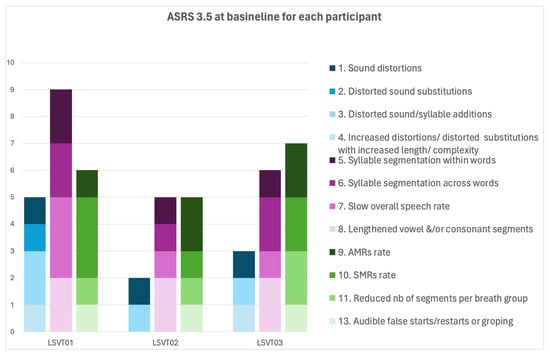Primary Progressive Aphasia and Apraxia of Speech
A topical collection in Brain Sciences (ISSN 2076-3425). This collection belongs to the section "Neurolinguistics".
Viewed by 9770Editors
Interests: Alzheimer disease; neurodegenerative diseases; cognition; cognitive post-COVID-19 disease; neuroimaging
Special Issues, Collections and Topics in MDPI journals
Interests: atypical dementia; frontotemporal dementia; primary progressive aphasia; molecular neuroimaging; biomarkers; cognitive screening tests
Special Issues, Collections and Topics in MDPI journals
Interests: frontotemporal dementia; aphasia; apraxia of speech; neuroimaging; electroencephalography
Special Issues, Collections and Topics in MDPI journals
Topical Collection Information
Dear Colleagues,
Primary progressive aphasia (PPA) is a group of neurodegenerative disorders, characterized by progressive language impairment, as well as cognitive and behavioral changes. By contrast, primary progressive apraxia of speech (PPAOS) is characterized by progressive speech impairment. Our knowledge regarding these disorders has evolved significantly in recent years. Notably, correlations between clinical findings and pathology have improved, and the main clinical, neuroimaging, and genetic features have been described. Furthermore, primary progressive aphasia and apraxia of speech are good models for the study of brain–behavior relationships and have contributed to the knowledge of the neural basis of language and speech functioning. However, many open questions remain. For instance, the classification of PPA into three variants (non-fluent, semantic, and logopenic) is under debate; further data about the epidemiology and natural history of diseases are needed; and, as in other neurodegenerative disorders, successful therapies are lacking.
For this Topic, we invite scholars to submit original research studies and reviews regarding all possible aspects of primary progressive aphasia and apraxia of speech, including basic science, epidemiology, clinical findings, longitudinal course, language and speech features, validation of neuropsychological tools for diagnosis, neuroimaging, blood and cerebrospinal fluid biomarkers, pathology, and treatments. A special focus should be on topics that can advance our assessment, differential diagnosis, and treatment of PPAs and PPAOS.
Dr. Jordi A. Matias-Guiu
Dr. Robert Jr Laforce
Dr. Rene L. Utianski
Collection Editors
Manuscript Submission Information
Manuscripts should be submitted online at www.mdpi.com by registering and logging in to this website. Once you are registered, click here to go to the submission form. Manuscripts can be submitted until the deadline. All submissions that pass pre-check are peer-reviewed. Accepted papers will be published continuously in the journal (as soon as accepted) and will be listed together on the collection website. Research articles, review articles as well as short communications are invited. For planned papers, a title and short abstract (about 100 words) can be sent to the Editorial Office for announcement on this website.
Submitted manuscripts should not have been published previously, nor be under consideration for publication elsewhere (except conference proceedings papers). All manuscripts are thoroughly refereed through a single-blind peer-review process. A guide for authors and other relevant information for submission of manuscripts is available on the Instructions for Authors page. Brain Sciences is an international peer-reviewed open access monthly journal published by MDPI.
Please visit the Instructions for Authors page before submitting a manuscript. The Article Processing Charge (APC) for publication in this open access journal is 2200 CHF (Swiss Francs). Submitted papers should be well formatted and use good English. Authors may use MDPI's English editing service prior to publication or during author revisions.









